The Roman historian Cornelius Tacitus (c. 55–117 C.E.) wrote a number of important works that offer an insight into life in the early Roman Empire. In his Annals, he presents a history of the emperors from the death of Augustus (14 C.E.) to the death of Nero (68 C.E.). But Tacitus did not just recount events. Rather, he included moral and political judgments about the people he highlighted.

Tacitus presented his histories as free from either bitterness or partiality, and, indeed, his brief consideration of Augustus presents both the positive and negative elements of his rule. Augustus restored order and stability and extended the reach of Rome’s power. However, not all of the methods he chose to use were entirely admirable. A close reading of Tacitus’ account reveals a lament for the loss of freedom. Under Augustus, Rome changed. Never again would it be what it had been before him or even during his reign.
The Annals opens with the death of Augustus, a crucial moment in the story of Rome. The Republic is gone. Augustus had ruled as the first emperor in all but name. What would happen now that he was gone? Although writing after the event, Tacitus whisks the reader back to this moment of uncertainty, when the Romans were discussing their political future. By giving an account of Augustus’ funeral and letting us listen in on the various judgments made about him at the time, Tacitus brilliantly conveys the truth: Our hopes for the future clearly are connected to our assessment of the past.
Insights at the Funeral
この記事は Dig Into History Magazine for Kids and Teens の November/December 2017 版に掲載されています。
7 日間の Magzter GOLD 無料トライアルを開始して、何千もの厳選されたプレミアム ストーリー、9,000 以上の雑誌や新聞にアクセスしてください。
すでに購読者です ? サインイン
この記事は Dig Into History Magazine for Kids and Teens の November/December 2017 版に掲載されています。
7 日間の Magzter GOLD 無料トライアルを開始して、何千もの厳選されたプレミアム ストーリー、9,000 以上の雑誌や新聞にアクセスしてください。
すでに購読者です? サインイン

Worshiping Heaven
For almost 500 years, emperors of the Ming and Qing dynasties offered sacrifices and prayers at the Temple of Heaven in Beijing.
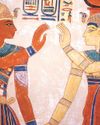
Peace Reigns
The news spread throughout Egypt—a new pharaoh, Ramses III, now sat on the throne.
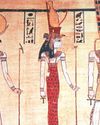
Problems To The East
Ramses III, the second king of Egypt’s 20th Dynasty, is viewed as Egypt’s last truly great pharaoh.
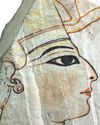
The Successors
Following the death of Ramses III, eight pharaohs, all named Ramses, ruled Egypt.
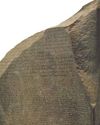
Stone Code
Hundreds of ships, led by the French general Napoleon Bonaparte, sailed from France in May 1798 on a secret mission.

Up & Away!
Eclipse observers often face unexpected difficulties, sometimes on their way to their chosen sites and sometimes at a site itself.

Edison's Eclipse Adventure
Thomas Edison (1847–1931) is the best-known inventor in American history.
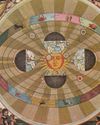
Digging Up Copernicus
The scientist “who made the Earth a planet” is how the Harvard-Smithsonian astronomer Owen Gingerich refers to Nicolaus Copernicus (1473–1543). Copernicus’ path breaking book, On the Revolutions of the Heavenly Spheres,challenged the centuries-old belief that the Earth stood stationary at the center of the cosmos.
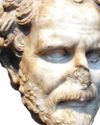
Demosthenes & Cicero
Even today, more than 2,000 years after they lived, Demosthenes and Cicero are still considered two of history’s most outstanding orators.
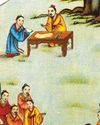
Confucius & Socrates
Some teachers are so inspirational that their influence lives on long after they die.